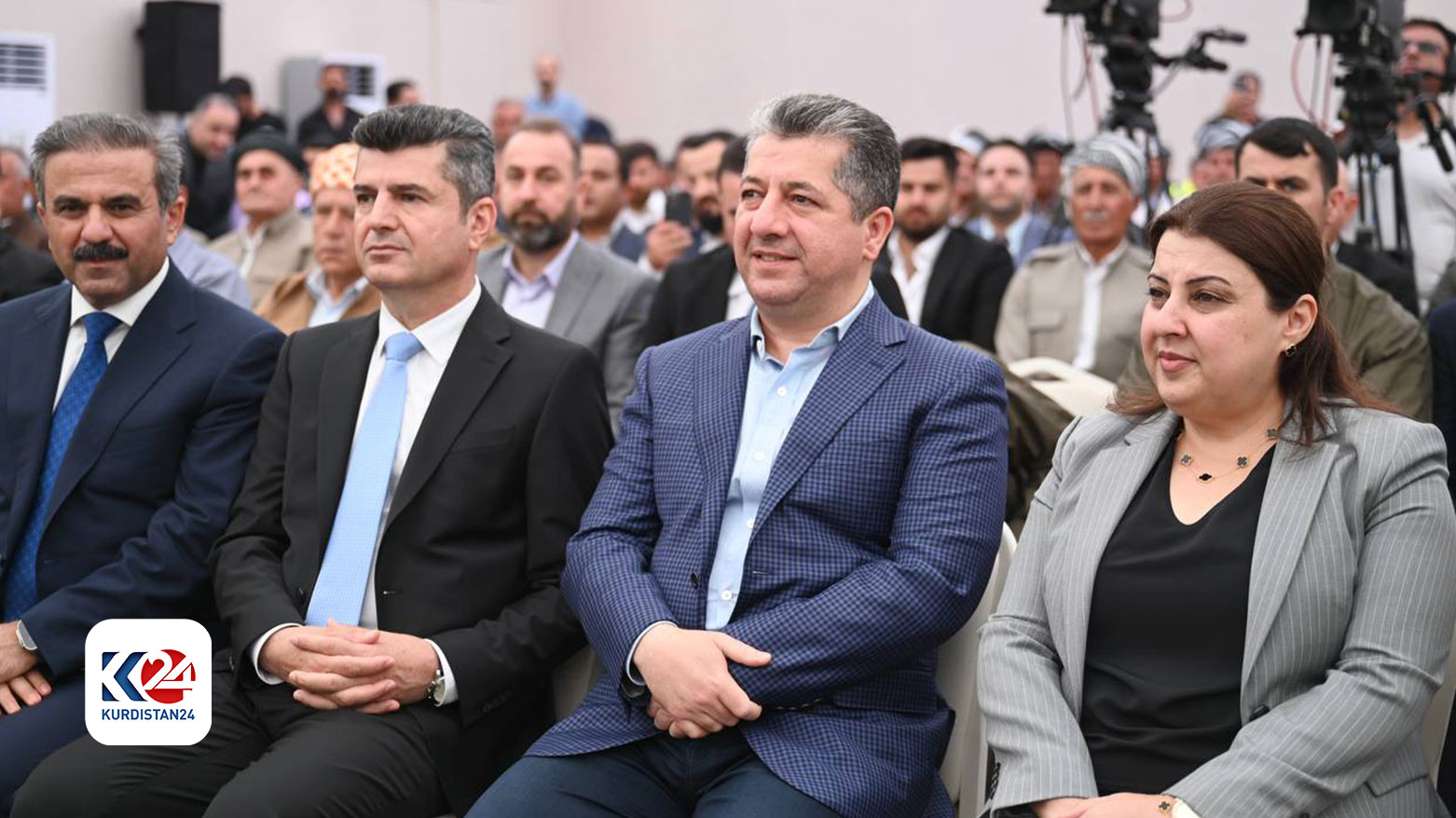Kurdistan Government Launches Subsidized Wheat Seed Distribution Plan to Support Local Farmers
This initiative aligns with Prime Minister Masrour Barzani’s broader vision to modernize and fortify the Kurdistan Region’s agriculture sector, which he has frequently described as a strategic pillar of economic diversification.

By Ahora Qadi
ERBIL (Kurdistan24) – In a significant move to bolster agricultural resilience amid climate-induced challenges, the Kurdistan Regional Government (KRG) announced on Sunday it will distribute 10,000 tons of wheat seeds to farmers at subsidized prices this year, as part of its broader strategy to promote food security and self-sufficiency across the Region.
Kurdistan’s Minister of Agriculture and Water Resources, Begard Talabani, revealed during a press conference on Sunday that the seed distribution initiative will take place between October 1 and 15, 2025, and is being implemented in coordination with the private sector.
Talabani emphasized that escalating global climate volatility—particularly in Iraq and the Kurdistan Region—has compelled the ministry to adopt specialized plans to mitigate environmental impacts and enhance agricultural adaptability.
“Over the past two years, we have focused on developing climate-resilient wheat seed varieties,” the minister said, extending her appreciation to the General Directorate of Agricultural Research and Extension for its vital role in advancing the initiative.
Production Growth and Price Reductions
According to Talabani, the ministry successfully produced 6,000 tons of wheat seeds in 2024. These seeds underwent processing, including cleaning and pressing, before being distributed at reduced prices. In 2025, with expanded collaboration from private sector partners, the quantity of wheat seeds is expected to rise to 10,000 tons.
Two types of wheat seeds will be offered to farmers: certified seeds priced at 860,000 Iraqi dinars per ton and registered seeds at 885,000 dinars. However, after applying a 60% government subsidy, farmers will only pay 450,000 dinars and 490,000 dinars respectively—figures significantly lower than market rates and previous years’ prices.
The minister added that the harvested wheat will also be repurchased by the government under the program, completing a full-cycle support scheme for the region’s agricultural producers.
A Pillar of PM Barzani’s Agricultural Vision
This initiative aligns with Prime Minister Masrour Barzani’s broader vision to modernize and fortify the Kurdistan Region’s agriculture sector, which he has frequently described as a strategic pillar of economic diversification. His government has prioritized food security, encouraged domestic production, and increased support for rural communities as part of long-term development efforts.
On Oct7, 2024, the Prime Minister inaugurated the Kavin Farm project in Semel, Duhok, to enhance livestock and dairy production. He emphasized the project’s role in strengthening food security and creating jobs, calling it a key step in economic diversification. The farm is part of the KRG’s strategy to reduce dependency on imports and ensure sustainable food supplies. Additionally, the premier outlined plans to expand industrial investment to boost youth employment, further advancing the region’s self-sufficiency and economic growth.
The seed subsidy program is emblematic of this vision, addressing both immediate farmer needs and long-range planning for agricultural sustainability amid shifting climatic conditions.
